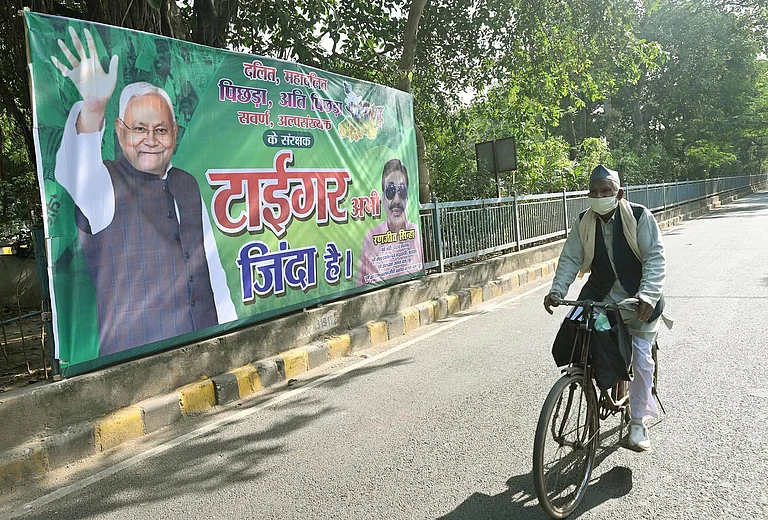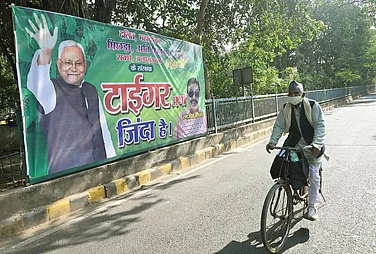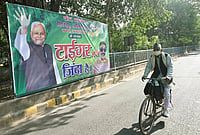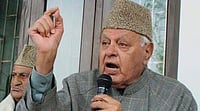External Affairs Minister S Jaishankar, known for not shying away from making India's stance clear on foreign policy matters, went all out again on key issues in a recent interview.
From calling out the "romanticism" of former Indian prime minister Jawaharlal Nehru on China to slamming Pakistan and Pakistan over extremism, Jaishankar made several strong statements.
EAM Jaishankar on Nehru's 'romanticism' on China
Speaking on India's approach of engaging with China with realism to deal with the neighbouring country's aggressive measures, Jaishankar hit out at the "romanticism" of the Nehruvian era with China.
"I argue for dealing with China from a basis of realism -- that strain of realism, which I feel -- strains all the way from Sardar Patel to Narendra Modi -- that is the strain of realism which I feel should allow us to have a certain approach," Jaishankar said in an interview with news agency ANI.
He elaborated, stating, "If you look at the last 75 years of our foreign policy, we have had a strain of realism about China and we have had a strain of romanticism, non-realism about China. It begins from day one where there is a sharp difference of opinion on how to respond to China between Nehru and Sardar Patel."
Jaishankar underscored that the PM Narendra Modi government aligns more with the realism advocated by Sardar Patel, saying, "The Modi government is more in conformity with the strain of realism which originated from Sardar Patel in dealing with China…I argue for dealing with China on the basis of realism that extends all the way from Sardar Patel to Narendra Modi."
Questioning Nehru's decisions, Jaishankar raised concerns about giving China a Security Council seat, adding, "The alternative strain which starts with Nehru's China first policy, which says first let China take the security council seat... from China first policy ends up as Chindia policy."
EAM Jaishankar on India's current relationship with China
S Jaishankar emphasized the imperative for India to adopt a realistic engagement with China during the interview. He advocated for the establishment of a relationship built on the pillars of mutual respect, sensitivity, and shared interests.
In a reevaluation of India's approach, Jaishankar underscored the necessity to counter China's aggressive measures. Criticizing the romanticized perspective of the Nehruvian era in dealing with China he highlighted the need for a more pragmatic and grounded stance in the current geopolitical landscape.
Addressing India's past interactions with China, Jaishankar stated, "I don't think we always lost out, but at various points of time, when we talk about the parts of the past today, it would be very difficult to understand, Panchsheel agreement is another such example... The role of confidence and assurance, the fact that we are a multiple millennia civilization. All of this should be in our demeanor, in our standing and in the way we approach other countries."
EAM Jaishankar on ties between India and Canada
Shifting focus to Canada, Jaishankar expressed concern over Khalistani forces operating in the country's political landscape. He remarked, "The issue at heart is the fact that in Canadian politics, these Khalistani forces have been given a lot of space and have been allowed to indulge in activities which I think are damaging to the relationship, clearly not in India's interest, and not in Canada's interest either."
While addressing the strained diplomatic ties with Canada, Jaishankar emphasized that the Khalistan issue is not new, stating, "The Khalistan issue has existed for years... It's not for me to speculate on other prime ministers." He clarified that the G20 summit in New Delhi had no relation to the Khalistani issue in Canada.
EAM S Jaishankar on cross-border terrorism practice by Pakistan
Additionally, Jaishankar commented on Pakistan's use of cross-border terrorism as a strategy, stating, "What Pakistan was trying to do, not now but over multiple decades, was really to use cross-border terrorism to bring India to the table. That, in essence, was its core policy. We have made that irrelevant by not playing that game now."
He added, "It's not a case that we won't deal with a neighbour. After all, at the end of the day, a neighbour is a neighbour, but it is that we will not deal on the basis of terms that they set where the practice of terrorism is deemed as legitimate and effective in order to bring you to the table."
Throughout the interview, Jaishankar consistently advocated for a realistic and mutual approach in India's foreign relations, emphasizing respect, sensitivity, and shared interests in dealing with both China and Canada.





















